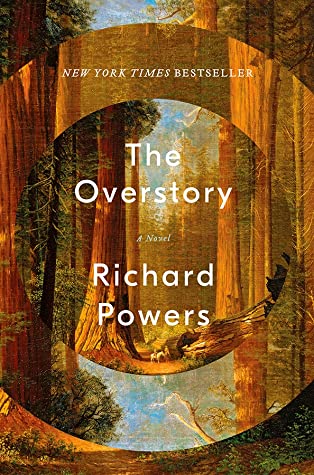What It’s About
The Overstory is a novel about trees. Well, more specifically it’s a novel about a group of people from a fairly diverse cast (although primarily white, there is 1 Asian woman and 1 very stereotypical Indian male programmer) that come together in various ways and times around the trees in their lives and how they’re impacted by those trees.
The central plot of the book revolves primarily around activism for trees and against logging and progress. Most of the characters come together in some way around this activism, either directly or through watching or teaching the activists. If you strip out the flowery language about trees, it’s primarily a story of 4 tree activists (one of my main criticisms, see below).
The story also revolves around the trees themselves and how they communicate, how they work together, and how they influence our world. This part of the book felt very true to real life and seemed well-researched. The discussion of the world of trees was quite good, definitely the most interesting part of the book.
How I Discovered It
I originally heard of the book through the Tim Ferriss Podcast with Hugh Jackman, who recommended it. I added it to my Goodreads, and completely coincidentally the same day my wife bought me a paperback copy for my birthday.
Thoughts
This book was a bit tough. At first when I read it, I rated it 5 stars, but the next day ended up downgrading it to a 4. I still think the book is wonderful and definitely changed the way I think about the natural world and the way we interact with it, although it’s still a bit early to understand if that perspective will actually be lasting. The conversation with the trees and their communication was riveting, and I really enjoyed reading about the research and relationships with trees.
The central plot was… ok. I get the idea behind it, and it was still enjoyable to read, but the people in the story just didn’t seem to have enough depth or interaction together, and some of the people even by the end felt a bit pointless to the overall arch of the human-centered part of the book. I get that the book is primarily meant to be, in the end, about the trees, right? but I can’t help but still want a bit more of a satisfying arc to the people’s stories.
Who Would Like It?
I think it was a great book and would definitely recommend, with a few caveats. I think you probably need to go into the book with at least a passing interest in nature or environmental studies; without that I think there’s way too much talk about the trees and science to really hold your interest. I would also say that you probably need to be a relatively avid reader to really dig into this book. It’s long and it’s a bit intimidating, and I think if you’re not reading relatively fast it could be easy to get lost. I felt the book flowed pretty well, but if you’re only reading a book or two a year, say, it’s a bit intimidating to dive into.
Favorite Quotes
You and the tree in your backyard come from a common ancestor. A billion and a half years ago, the two of you parted ways. But even now, after an immense journey in separate directions, that tree and you still share a quarter of your genes.
Cameras come out of packs. Botanists and guides alike snap away. They argue over what the face means. They laugh at the stupefying odds against anything accidental growing exactly like this, like us, out of mindless wood. Patricia does the estimate in her head. The odds are nothing compared to the first two great rolls of the cosmic dice: the one that took inert matter over the crest of life, and the one that led from simple bacteria to compound cells a hundred times larger and more complex. Compared to those first two chasms, the gap between trees and people is nothing at all. And given the outlandish lottery capable of producing any tree, where’s the miracle in a tree shaped like the Virgin?
